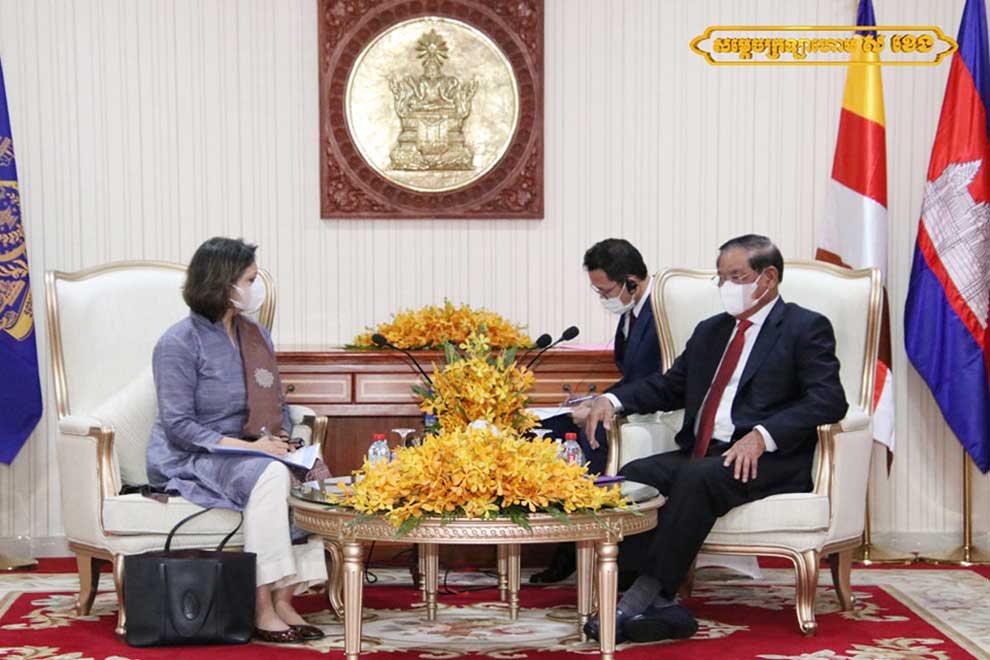
Interior minister Sar Kheng (right) meets with new Asian Development Bank (ADB) country director Jyotsana Varma on October 4. SAR KHENG VIA FACEBOOK
Minister of Interior Sar Kheng has requested that the newly appointed Asian Development Bank (ADB) country director for Cambodia continues to support the second phase of the government’s decentralisation and deconcentration reforms.
The government has currently transferred 55 jobs in 20 sectors to municipal, town and district administrations.
Sar Kheng met Jyotsana Varma at the National Assembly on October 4.
“We hope that ADB will continue to support decentralisation and deconcentration reforms, as well as the second phase of the government’s national programme.
“The government has been successful, with these reforms having contributed to stability, poverty reduction and the participation of women in sub-national administrations,” Sar Kheng said.
In the meeting, Varma said ADB was a strong partner of the Cambodian government, particularly the interior ministry, with a number of projects being implemented together.
“ADB would like to thank [Sar Kheng] for supporting ADB during the fight against Covid-19, which yielded commendable results,” Varma said.
She congratulated the government for its commitment and willingness to implement decentralisation and deconcentration reforms, which she said required time.
Sar Kheng noted that ADB has, along with a number of other development projects with countries along the Mekong River, supported Cambodia in its decentralisation and deconcentration reforms since 2002.
The reforms require focus and commitment, he added.
He said one of the challenges was the limited understanding of stakeholders, both public institutions and civil society, as they held differing views and interpretations of the reform’s vision and objectives.
“A further challenge is that the administrative structure has not yet fully adapted to the different characteristics of each sub-national administration, such as urban and rural areas, and major towns,” he said.
Sar Kheng said that while the government has now transferred 55 positions across 20 sectors to municipal and district administrations, efforts to implement decentralisation could be adopted faster.
“The government has recently issued sub-decrees related to investment that allow sub-national administrations to decide on projects worth up to $5 million without national-level authorisation, though no administration has approved one yet,” he said.
He stressed that such issues required the support of the national administration. If the implementation were not fully successful, it could affect public opinion of the reforms.
Sar Kheng also requested that ADB continues to seek additional technical experts to support inter-sectoral work, such as the development of digital governance systems and responses to climate change, which as a relatively recent consideration requires support from development partners.
Varma said ADB accepted the requests and would continue to study with interior ministry working groups to ensure the effectiveness of projects between ADB and the ministry.
“Regarding projects related to climate change, ADB is working on one worth up to $100 billion for 2030. I would request support from [Sar Kheng],” she said in reference to ADB’s ambition to deliver climate financing to its developing member countries from 2019-2030.
Sar Kheng said the government stands ready to continue working with ADB during her mandate.








